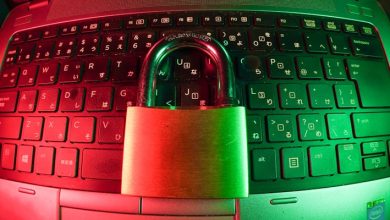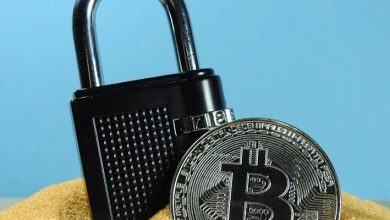Essential Security Measures for Crypto Wallets

- Understanding the Importance of Security for Crypto Wallets
- Best Practices for Securing Your Crypto Wallet
- Common Threats to Crypto Wallets and How to Mitigate Them
- Choosing the Right Type of Crypto Wallet for Maximum Security
- Steps to Take in Case of a Security Breach on Your Crypto Wallet
- The Future of Security Measures for Crypto Wallets
Understanding the Importance of Security for Crypto Wallets
Cryptocurrency wallets are essential tools for securely storing and managing digital assets. Understanding the importance of security for crypto wallets is crucial to protect your investments from potential threats and risks. By implementing proper security measures, you can significantly reduce the chances of unauthorized access and potential loss of funds.
One of the key aspects of security for crypto wallets is the use of strong passwords. It is recommended to use a combination of uppercase and lowercase letters, numbers, and special characters to create a complex and unique password. Avoid using easily guessable passwords such as “123456” or “password” as they can be easily compromised by hackers.
Another important security measure for crypto wallets is the use of two-factor authentication (2FA). By enabling 2FA, you add an extra layer of security to your account, requiring a second form of verification in addition to your password. This can help prevent unauthorized access even if your password is compromised.
Regularly updating your crypto wallet software is also crucial for maintaining security. Developers often release updates to patch security vulnerabilities and improve the overall security of the wallet. By keeping your wallet software up to date, you can ensure that you are protected against the latest threats and risks.
It is also important to be cautious of phishing attempts and scams targeting crypto wallet users. Be wary of unsolicited emails or messages asking for your wallet information or login credentials. Always verify the source of any communication before providing any sensitive information to protect yourself from potential scams.
In conclusion, understanding the importance of security for crypto wallets is essential for safeguarding your digital assets. By implementing strong passwords, enabling two-factor authentication, keeping your wallet software up to date, and being cautious of phishing attempts, you can enhance the security of your crypto holdings and minimize the risk of unauthorized access and potential loss of funds.
Best Practices for Securing Your Crypto Wallet
When it comes to securing your crypto wallet, there are several best practices you should follow to ensure the safety of your funds. One of the most important measures is to use a hardware wallet, which is a physical device that stores your private keys offline, making it much harder for hackers to access your funds. Additionally, be sure to enable two-factor authentication on your wallet, adding an extra layer of security.
Another essential step is to regularly back up your wallet, either by writing down your recovery phrase or saving it on a separate device. This way, if your wallet is lost or compromised, you can easily restore access to your funds. It’s also important to keep your wallet software up to date, as developers often release security patches to protect against new threats.
Furthermore, be cautious when sharing your wallet address online and only transact with reputable sources. Avoid clicking on suspicious links or downloading attachments from unknown senders, as these could be phishing attempts to steal your private keys. Finally, consider using a VPN when accessing your wallet from public Wi-Fi networks to prevent unauthorized access.
Common Threats to Crypto Wallets and How to Mitigate Them
One of the biggest concerns when it comes to crypto wallets is the various threats that can compromise the security of your assets. By understanding these common threats and taking proactive measures to mitigate them, you can significantly reduce the risk of falling victim to malicious actors.
- Phishing attacks: Phishing attacks are a common tactic used by cybercriminals to trick individuals into revealing their sensitive information, such as login credentials. To mitigate this threat, always double-check the legitimacy of the websites you are visiting and never click on suspicious links.
- Malware: Malware is malicious software designed to infiltrate your device and steal your crypto assets. To protect yourself from malware, make sure to regularly update your antivirus software and avoid downloading files from untrusted sources.
- Public Wi-Fi networks: Public Wi-Fi networks are often insecure, making them a prime target for hackers looking to intercept sensitive information. Avoid accessing your crypto wallet or making transactions while connected to public Wi-Fi to minimize the risk of a breach.
- Physical theft: Physical theft is another threat to consider, especially if you store your crypto wallet on a hardware device. To mitigate this risk, consider storing your hardware wallet in a secure location and using additional security measures, such as a PIN code or biometric authentication.
By being aware of these common threats and implementing the necessary security measures, you can safeguard your crypto assets and enjoy peace of mind knowing that your investments are protected. Remember that when it comes to crypto wallets, prevention is key, so always stay vigilant and prioritize security.
Choosing the Right Type of Crypto Wallet for Maximum Security
When it comes to ensuring the security of your cryptocurrency holdings, choosing the right type of wallet is crucial. There are several options available, each with its own set of security features and considerations. By selecting the most appropriate wallet for your needs, you can maximize the protection of your assets.
One popular option is a hardware wallet, which is a physical device that stores your private keys offline. This provides an extra layer of security, as it is not connected to the internet and therefore less vulnerable to hacking attempts. Hardware wallets are considered one of the most secure options available for storing cryptocurrency.
Another type of wallet is a paper wallet, which involves printing out your private keys and storing them in a secure location. While this method is secure from online threats, it is susceptible to physical damage or theft. It is essential to keep your paper wallet in a safe place to prevent unauthorized access.
For those who prefer a more convenient option, a mobile or desktop wallet may be the right choice. These wallets are software-based and can be accessed from your smartphone or computer. While convenient, they are more vulnerable to hacking attempts compared to hardware wallets. It is crucial to ensure that your device is secure and free from malware.
Ultimately, the right type of wallet for you will depend on your individual preferences and security needs. It is essential to research each option carefully and choose the one that best aligns with your risk tolerance and level of technical expertise. By taking the time to select the right wallet, you can ensure that your cryptocurrency holdings are secure and protected from potential threats.
Steps to Take in Case of a Security Breach on Your Crypto Wallet
In the event of a security breach on your crypto wallet, it is crucial to act swiftly and decisively to minimize any potential damage. Here are the steps you should take:
1. **Disable Access**: The first step is to immediately disable access to your crypto wallet to prevent any further unauthorized transactions or access to your funds.
2. **Change Passwords**: Next, change the passwords for both your wallet and any associated accounts to ensure that the breach does not extend to other platforms.
3. **Monitor Transactions**: Keep a close eye on your transaction history to identify any suspicious activity and report it to the relevant authorities.
4. **Contact Support**: Reach out to the customer support team of your wallet provider to inform them of the breach and seek their guidance on next steps.
5. **Report to Authorities**: If you believe that your wallet has been compromised, report the incident to the appropriate authorities to investigate the breach further.
6. **Backup Recovery**: If possible, attempt to recover any lost funds through backup recovery options provided by your wallet provider.
By following these steps promptly and diligently, you can mitigate the impact of a security breach on your crypto wallet and safeguard your assets effectively.
The Future of Security Measures for Crypto Wallets
As technology continues to advance, the future of security measures for crypto wallets is constantly evolving. In order to protect your digital assets, it is essential to stay up to date with the latest trends in security protocols.
One of the emerging trends in crypto wallet security is the use of biometric authentication. This technology allows users to access their wallets using unique physical characteristics such as fingerprints or facial recognition. By incorporating biometric authentication into crypto wallets, users can add an extra layer of security to their accounts.
Another important aspect of future security measures for crypto wallets is the implementation of multi-signature transactions. This feature requires multiple private keys to authorize a transaction, making it more difficult for hackers to gain access to funds. By requiring multiple signatures, crypto wallets can ensure that transactions are legitimate and secure.
Furthermore, the use of hardware wallets is becoming increasingly popular in the world of cryptocurrency. These physical devices store private keys offline, making them less vulnerable to cyber attacks. By keeping private keys offline, hardware wallets provide an added level of security for crypto assets.
In conclusion, the future of security measures for crypto wallets is promising, with advancements in biometric authentication, multi-signature transactions, and hardware wallet technology. By staying informed and implementing these security measures, crypto wallet users can protect their digital assets from potential threats.



